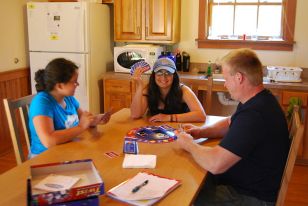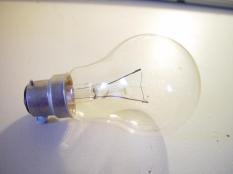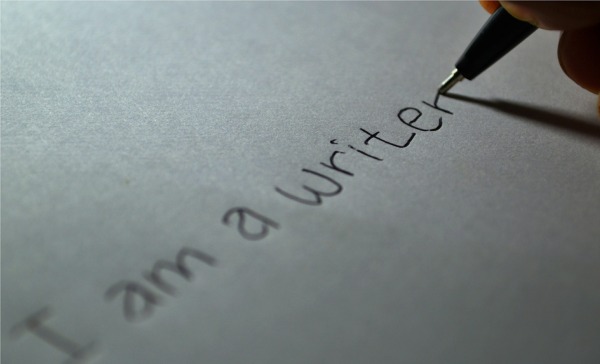Fun Summer Learning – Writing
Yes, writing can be fun!
The key is to find a topic that you want to write about and then jump right in. Don’t hesitate, do not pass GO, do not second guess yourself.
Make a list of your children’s interests: sports, video games, television shows, movies, superheroes, toys, etc. Encourage them to get excited about writing about their favourite topic(s).
For example, if Johnny is obsessed with transformers, he could write a review about a certain transformer. He could instructive article explaining how to manipulate the transformer. He could compare this transformer with others in his collection, and so on.
Children often want to share what they know and what they are passionate about.
Writing a blog about one’s interests is a great way to share information. Search for other  blogs or sites on the same topic. This will allow you to practise reading skills, too. Connecting with others and following their sites will increase the number of your readers and their participation.
blogs or sites on the same topic. This will allow you to practise reading skills, too. Connecting with others and following their sites will increase the number of your readers and their participation.
If you are worried about Internet security, ensure that you have the passwords and go online with your children, or monitor them. You can control the comments that come in or read them in advance of your writing time.
Don’t be too pedantic!
You don’t need to correct every spelling or punctuation mistake.
Gently make suggestions. Reword a confusing sentence as you read it, allowing your child to make the change if he or she catches your meaning.
The more your children practise writing, and of course reading other articles, the better they will become. You might even point out a few errors that other authors make that are similar to your child’s errors. The next time he or she is writing, this “correction” might be more obvious.
Of course, all of this is child dependent. If your children have no issue with proofreading and editing, you can go full throttle with doing so.
If you don’t want to blog, you can always start a journal. Part of the fun is searching for a nice book in which to keep a journal. Having said this, any scribbler or even a binder with loose-leaf sheets can serve. You can always decorate the cover yourselves!
Your children can write a journal just like a blog, or they can do a more traditional journal in which daily events, feelings, and thoughts are recorded.
If you want, you could delineate a few daily topics. For example: Write one good thing that happened, one not so good, one new experience, one funny or interesting story, etc.
Of course, you can create cartoons with text, write a short story, even begin a novel if your children are keen. I have met several students who are really challenged with writing; however, given the chance, they get very excited about writing a science fiction story or a fantasy!
Remember – look for that KEY.
Above all, you want to have fun with your creations. The whole goal of learning is to find interesting avenues into new discoveries. That’s not to say there is never any “slogging” to be done, but even that can be fun in the end when you are proud of the final accomplishment.
Need a little help along the way?
Tutoring can make a massive difference – especially when the tutor loves learning himself or herself and projects that enthusiasm to the student.
Free information meetings available! (Online or in-person.)

Our Rose of Sharon this year!
Website: www.tutoringcentral.com
This week’s video:
Fun Summer Learning – Writing.



 include graphics, look for links or other material to incorporate. In other words, they can practise a lot of the same academic skills required in school without feeling like they are in school!
include graphics, look for links or other material to incorporate. In other words, they can practise a lot of the same academic skills required in school without feeling like they are in school!



 improving.
improving. paragraph should be at the beginning of the paragraph – often the first sentence.
paragraph should be at the beginning of the paragraph – often the first sentence. made the case for your argument or point of view. This can be especially useful in argument paragraphs because it leads the reader to your conclusion drawing them in with your amazing proofs and supports.
made the case for your argument or point of view. This can be especially useful in argument paragraphs because it leads the reader to your conclusion drawing them in with your amazing proofs and supports.



 Catnaps are good, too, if they are brief. (Catnaps might be a misnomer. Don’t sleep like your cat for sixteen hours a day!) Make sure you eat healthy meals – small and numerous is best to keep your body (brain is included) performing at a steady rate. Don’t let yourself off the hook! Wait – I thought you said to be kind to yourself? Yes, sometimes kindness = toughness. You need to be honest with yourself – no cheating – no lapsing on scheduled homework time – no excuses. The reward you get later is the kindness component.
Catnaps are good, too, if they are brief. (Catnaps might be a misnomer. Don’t sleep like your cat for sixteen hours a day!) Make sure you eat healthy meals – small and numerous is best to keep your body (brain is included) performing at a steady rate. Don’t let yourself off the hook! Wait – I thought you said to be kind to yourself? Yes, sometimes kindness = toughness. You need to be honest with yourself – no cheating – no lapsing on scheduled homework time – no excuses. The reward you get later is the kindness component.

 imaginary classmate. (Suggestion – pick someone you like!)
imaginary classmate. (Suggestion – pick someone you like!)








 Ron – well, a slightly younger version! 🙂
Ron – well, a slightly younger version! 🙂